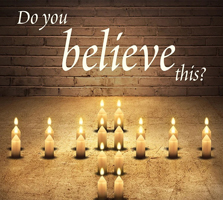Traditionally the week of prayer is celebrated between 18-25 January, between the feasts of St Peter and St Paul.
Check out the event website. The guiding biblical text for the Week of Prayer for Christian Unity 2025 comes from John 11:17-27. The theme for the week, “Do you believe this?” (v. 26), takes its cue from the dialogue between Jesus and Martha when Jesus visited the home of Martha and Mary in Bethany following the death of their brother Lazarus.
At least once a year, Christians are reminded of Jesus’ prayer for his disciples that “they may be one so that the world may believe” (see John 17.21). Hearts are touched and Christians come together to pray for their unity. Congregations and parishes all over the world exchange preachers or arrange special ecumenical celebrations and prayer services. The event that touches off this special experience is the Week of Prayer for Christian Unity.

For this year, 2025, the prayers and reflections for the Week of Prayer for Christian Unity were prepared by the brothers and sisters of the monastic community of Bose in northern Italy. This year marks the 1,700th anniversary of the first Christian Ecumenical Council, held in Nicaea, near Constantinople in 325 AD. This commemoration provides a unique opportunity to reflect on and celebrate the common faith of Christians, as expressed in the Creed formulated during this Council; a faith that remains alive and fruitful in our days. The Week of Prayer for Christian Unity 2025 offers an invitation to draw on this shared heritage and to enter more deeply into the faith that unites all Christians.

